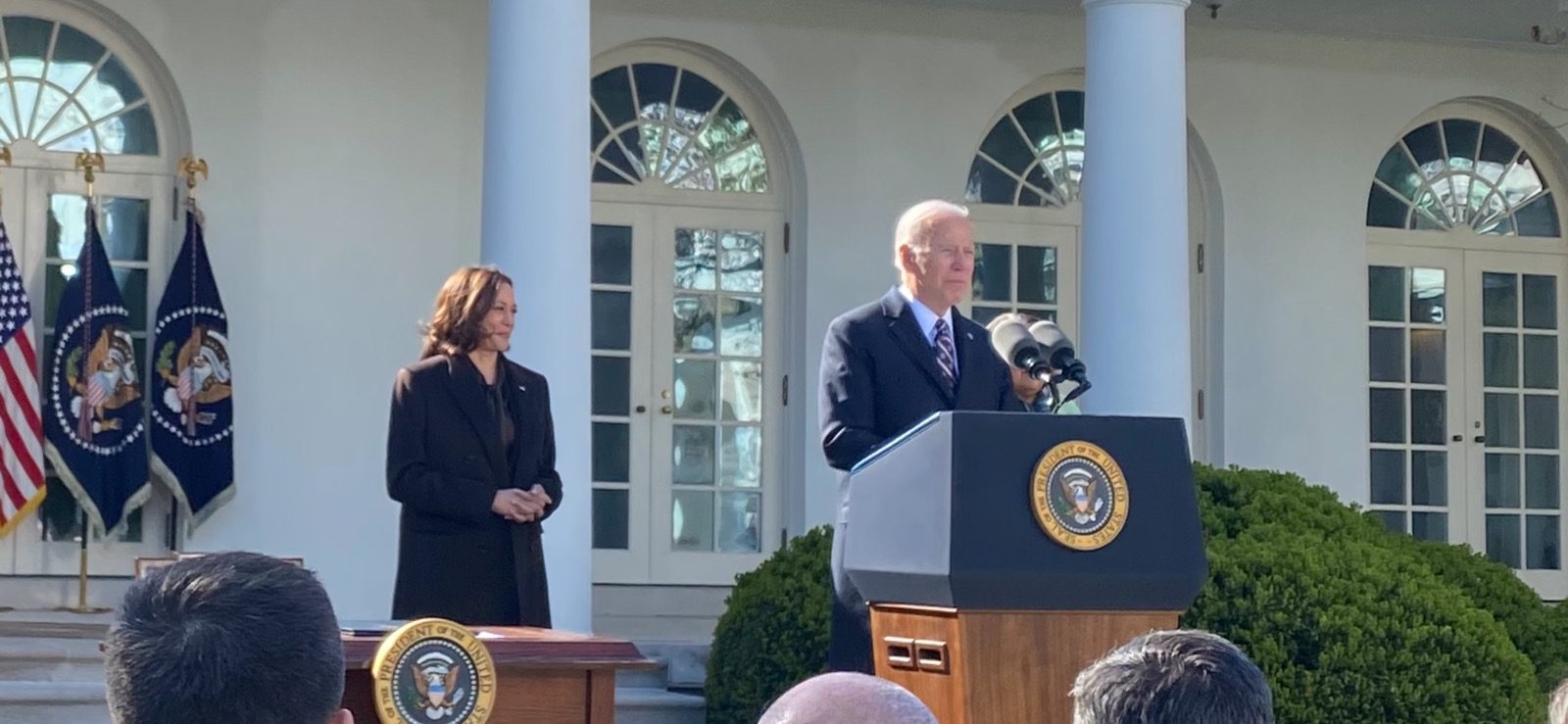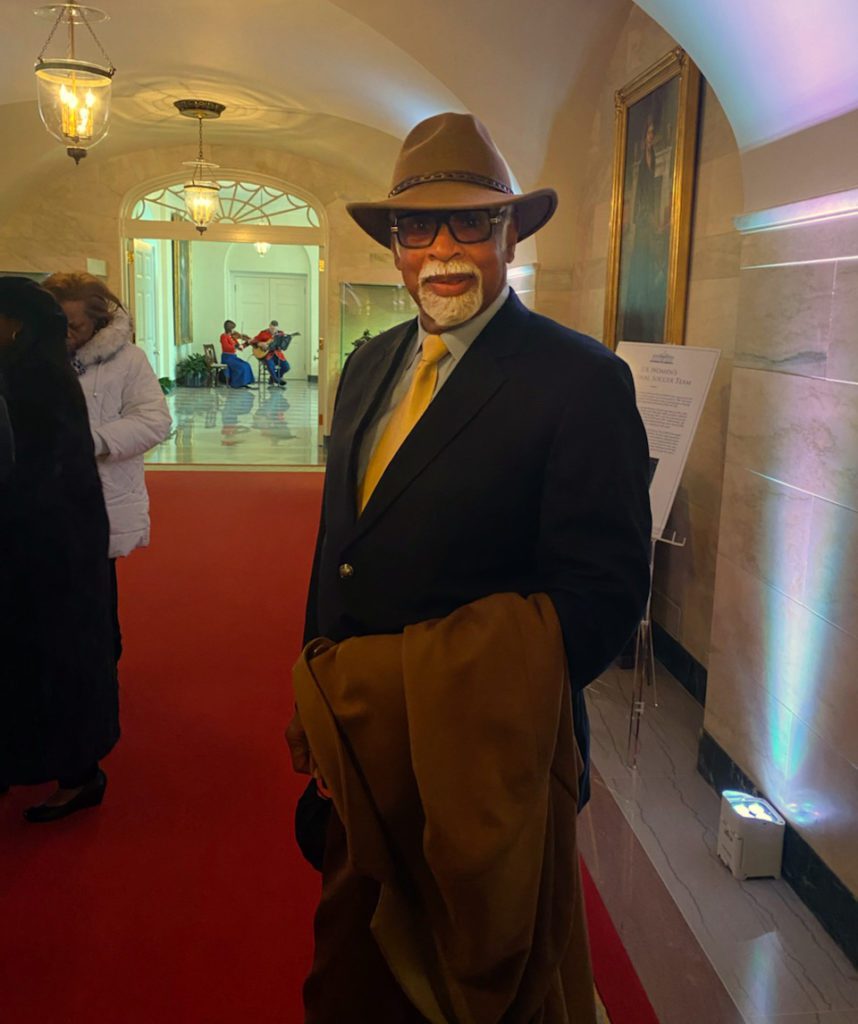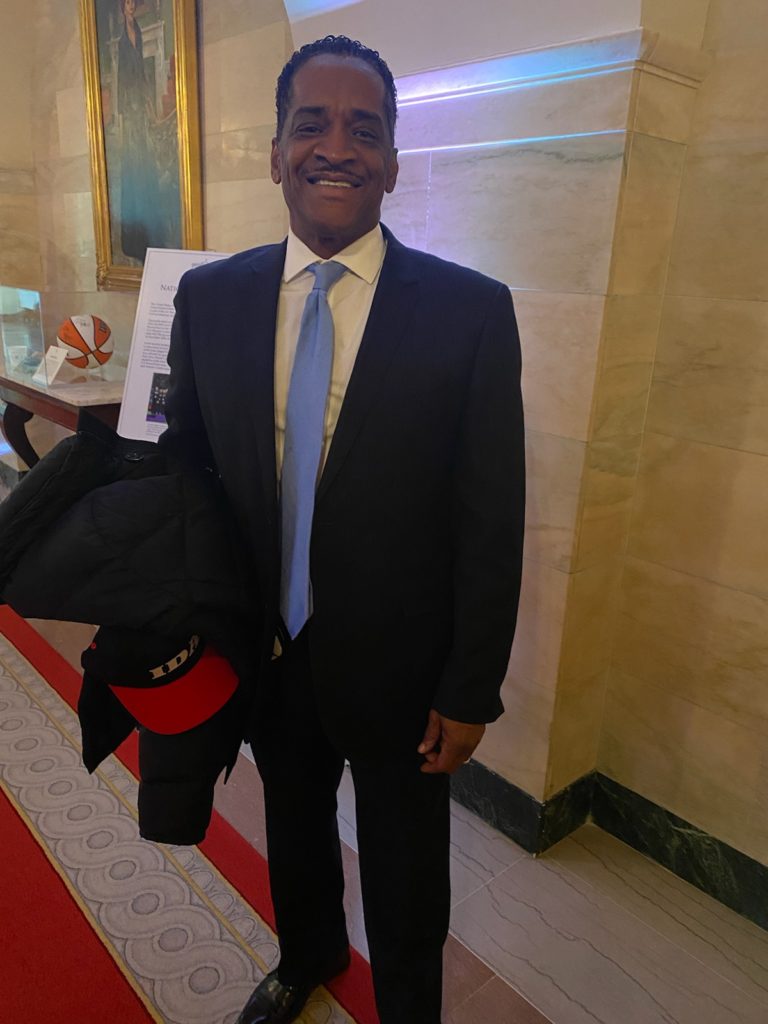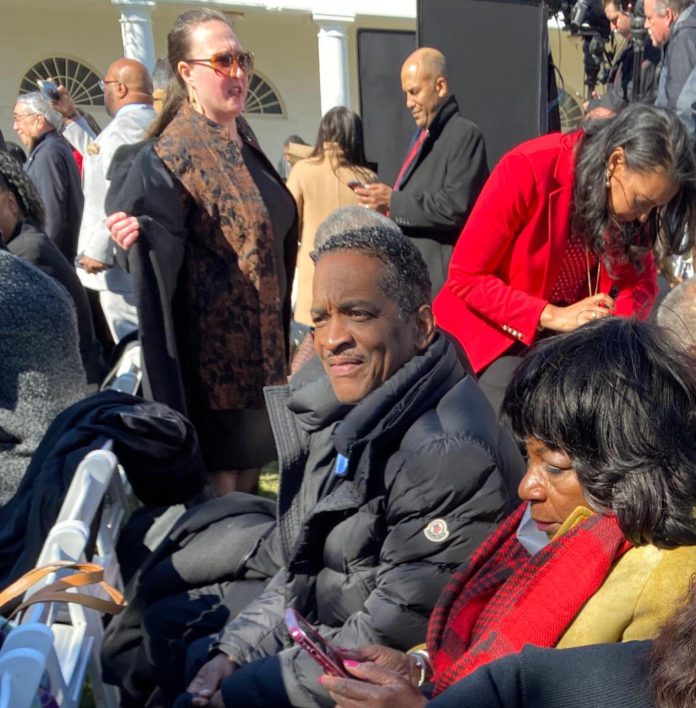“This moment (was) 130 years in the making. Ida B. Wells did what she could, and then she passed on the baton to those who came after her. And this was our moment, and what a moment it was.”
Civil rights activist Dr. L. LaSimba M. Gray Jr. said this is what he felt Tuesday (March 29) as he stood on the White House grounds and watched as President Joe Biden signed into federal law the Emmett Till Antilynching Act.

As the President signed the law, he said, “Well, ladies and gentlemen, good afternoon. I just signed into law the Emmett Till Antilynching Act, making lynching a federal hate crime for the first time in American history.”

Gray reflected, “So many leaders that had been in the fight a long time were there. Al Sharpton and others …”
Civil rights activists and elected officials from all over the country joined Biden. White House invitations went out all over the country. Many accepted the invitation. Shelby County Commissioner Eddie Jones also was present.
“I recognized so many of my colleagues from all over the country,” Jones said. “I am president of the National Association of Black County Officials. It was great sharing that once-in-a-lifetime moment.
“Before March 29, bills like this had been voted down every time. After more than 200 attempts, lynching is declared by (federal) law to be a hate crime. Being there was awesome.”
Vice President Kamala Harris also gave remarks, lauding the importance of the “Black Press” when she began to speak about Ida B. Wells.
“The courageous nature of that incredible American … to help open the eyes of our nation to the terror of lynching … speaks to the importance of the Black Press, making sure we have storytellers in our community, who will tell the story when no one else is willing to tell it,” Harris said.
Memphian Gray spearheaded a funding effort that resulted in a statue honoring Wells being erected at Beale and Fourth.
In the late 1800s, her newspaper, among other things, focused on lynching and other degradations of Blacks. She left Memphis after receiving death threats.
The great-granddaughter of Ida B. Wells-Barnett, Michelle Duster, walked out with the President and Vice President.
“Lynching was used as an excuse to terrorize the Black community and to maintain the social and economic hierarchy based on race,” Duster said.
Biden said Duster shared in a private conversation that Wells went to the White House to visit President William S. McKinley in 1900 as part of a delegation to urge him to make lynching a federal crime.
Duster said the country’s “national crime” is lynching.
Harris said the bill is not only for the past, but for the present and future as well.
“Racial terror still occurs,” said Harris. “We must have the courage to name it when it happens and hold the perpetrators to account.”

Jones said he reflected on the fact that lynching is terrorism, no matter who is the target.
“Lynching is lynching,” Jones said. “Black, white, green, red, yellow – it is terrorizing. Can you imagine the fear and intimidation our ancestors felt? Lynching was used to alienate them from their rights after slavery was abolished.
“This was not just our moment, but the moment of those who were tortured and killed, never experiencing justice.”
Harris and U.S. Sen. Cory Booker (D-New Jersey) co-sponsored the bill, while Harris was still in the Senate.
“The bill was named after Emmett Till, a 14-year-old African American, savagely murdered by a group of white men in Mississippi in 1955,” Harris said. Till allegedly had whistled at a white woman.
Before returning to Memphis, Gray also visited the Dr. Martin Luther King Jr. monument while he was in Washington.
“I just stood and reflected on how Dr. King would have loved being there for this moment,” said Gray.




